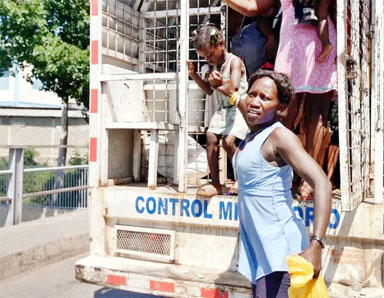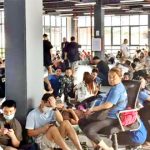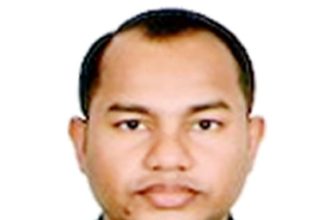At the Dajabón border crossing between the Dominican Republic and Haiti,
a constant stream of trucks pulls up carrying undocumented Haitian migrants,
who are being deported back to their home country. They are being sent to
a nation in the grip of its most
- Advertisement -
acute humanitarian crisis
since the devastating earthquake in 2010, which killed hundreds of thousands,
reports BBC.
“I’d been in the Dominican Republic for three years,” yelled construction worker, Michael Petiton, “they came into my house and took me from my home.”
He worked hard, he insisted, doing a job most Dominicans did not want. Now he is back in Haiti with only the clothes on his back and a few tools he managed to salvage in a rucksack.
Haiti’s already precarious situation has quickly deteriorated over the past weeks as gangs have launched coordinated attacks on key facilities to force the resignation of the country’s prime minister.
Haitian migrants forced back over border
total, more than 350,000 people have been internally displaced in
- Advertisement -
Haiti – more than 15,000 of them in the last fortnight.
Yet here at the border crossing, the Dominican authorities have been sending back hundreds of undocumented Haitians every day.
Dominican soldiers unlock the wrought-iron doors, order out dozens, and send them across the Massacre River into Haiti.
Haitian migrants forced back over border
Some of the immigrants are furious, shouting indignantly in Spanish and Creole.
- Advertisement -
Others are resigned, holding their children or a few possessions in their arms.
The message the Dominican Republic appears to be sending is no matter how bad things become at home, Haitians should not seek refuge on Dominican territory.
Last month, the country’s president, Luis Abinader, demanded in an
appearance
before the United Nations Security Council in New York that the
international community step up aid to Haiti and deploy a multinational
force there.
He urged the UN to “fight together to save Haiti”, but warned that if
no help was forthcoming, his country would “fight alone to protect
the Dominican Republic”.
Questioned last week about the possibility of receiving Haitians fleeing
unrest, Mr Abinader categorically ruled out accepting refugee camps on
Dominican soil. Those being returned to Haiti face
real uncertainty.








